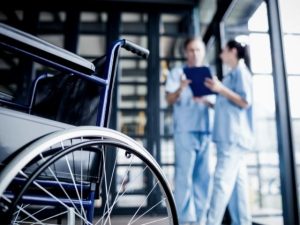The Role of Special Needs Nursing in Reducing Stigmas
Nurses have the ability to serve this special population in an unique way. There are a lot of ways nurses can help reduce these stigmas by setting an example for others.
Education
Many times, stigmas can be alleviated simply by placing value on education and informing those that are misled of the truths, myths, and slander that surround those with both intellectual and developmental disabilities.
It is rare that educational trainings on disabilities are required by your healthcare organization, so it is important to take initiative in learning about this topic.
Choose CE courses like this one, that cover topics like dealing with behaviors exhibited by these individuals, communicating effectively, administering and monitoring medications, utilizing special techniques if the individual becomes combative, and educating all staff and caregivers about important ways to interact with these individuals.
Integration into The Community
Encouraging these individuals to participate in activities in the community is imperative when attempting to alleviate stigmas.
Allowing the individual to participate and become involved in community outings and public activities aids in assisting others to visualize how these individuals thrive with community involvement.
Check the patient’s local community for programs that encourage and support community involvement.
Effective Communication
It can be a challenge in understanding how to communicate with patients in a non-judgmental and respectful manner.
As nurses, we must tailor our communication style to include tactics such as speaking directly to these individuals, maintaining eye contact, using ordinary language and expressions that are easy to understand, using age-appropriate language, avoiding interruptions or rushing clients that speak slowly, and never guessing what a client may have said by asking for clarification when communication is difficult.
Some patients also use communication devices such as an electronic tablet, writing thoughts on paper, or pointing to flash cards with pictures and phrases that indicate their needs and/or wants.
Understanding these aspects can make you better prepared to deliver care to your patients.
Advocacy
Serving as an advocate is one of the primary goals in speical needs nursing.
We as nurses should empower our patients to perform and complete tasks at their own ability which ultimately leads to an increased self-worth and acceptance by others.
Being a strong advocate also looks like identifying and implementing specific services for the individual and their caregivers based on their individual needs.








